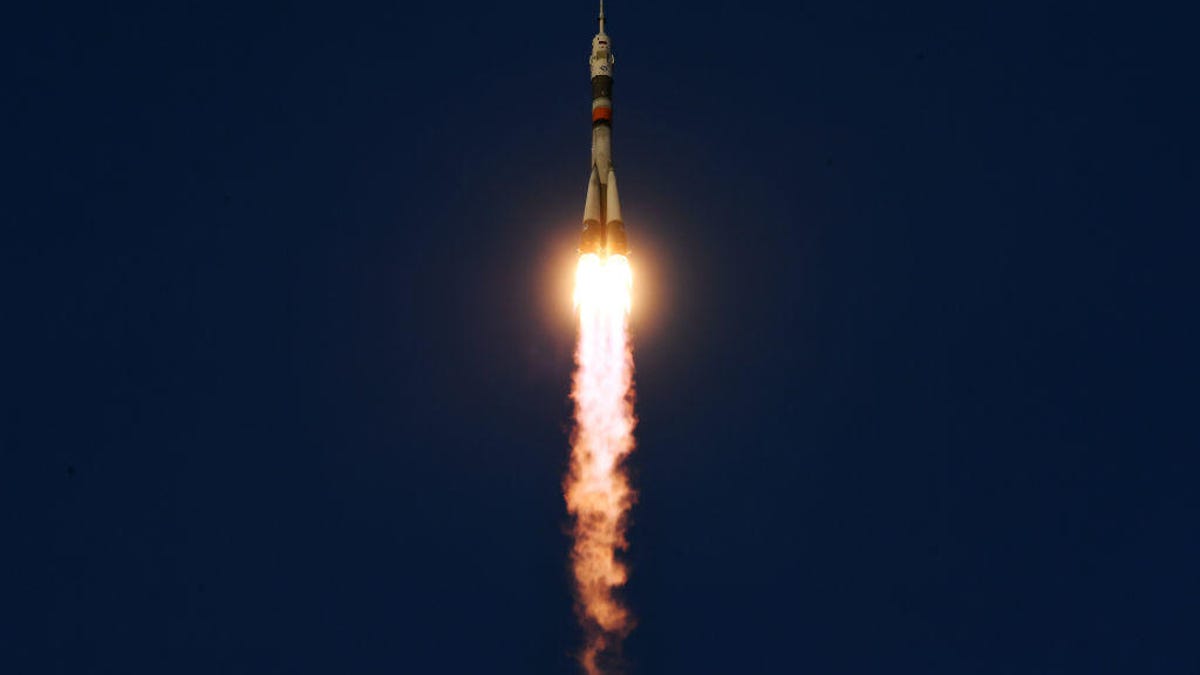NASA, Russia launch Soyuz rocket to ISS just weeks after failure
This time, the ride went smoothly and without interruption.

The Soyuz MS-11 spacecraft lifts off on Monday.
American, Canadian and Russian astronauts launched to the International Space Station in a Soyuz rocket Monday morning, weeks after the same model failed shortly after take-off.
NASA's Anne McClain, the Canadian Space Agency's David Saint-Jacques and Russian cosmonaut Oleg Kononenko reached orbit minutes after the smooth launch from Baikonur Cosmodrome in Kazakhstan at 3:31 a.m. PT.
They're due to arrive at the ISS six hours after launch, and they'll board the station less than two hours after that.
There, they'll meet the European Space Agency's Alexander Gerst, NASA's Serena Auñón-Chancellor and Roscosmos' Sergey Prokopyev, the current crew of the ISS who'll use the Soyuz to return to Earth on Dec. 20.
Gerst, who tweeted about the launch Monday, could see the launch from the ISS because the space station was in orbit directly over Kazakhstan at the time.
Congratulations to the Russian Space Agency @roscosmos and all international partners for a flawless launch of #SoyuzMS11. And welcome to space, @Astro_DavidS, @AstroAnnimal and Oleg! #Exp57 #Exp58 #Horizons pic.twitter.com/rzEjtm2PcO
— Alexander Gerst (@Astro_Alex) December 3, 2018
The previous launch -- involving NASA's Nick Hague and Russia's Aleksey Ovchinin -- had to be aborted after the first stage of the rocket failed to separate as planned. The pair was forced to evacuate, and had a safe but bumpy ride back to Earth.
Monday's launch will be followed by a SpaceX Dragon spacecraft carrying cargo -- including festive food for the holidays -- to the ISS from Kennedy Space Center in Florida on Tuesday.
First published at 4:25 a.m. PT.
Updated at 8:05 a.m. PT: Adds fresh Gerst tweet.
CNET's Holiday Gift Guide: The place to find the best tech gifts for 2018.
NASA's InSight landing on Mars: This was a triumph of human achievement

